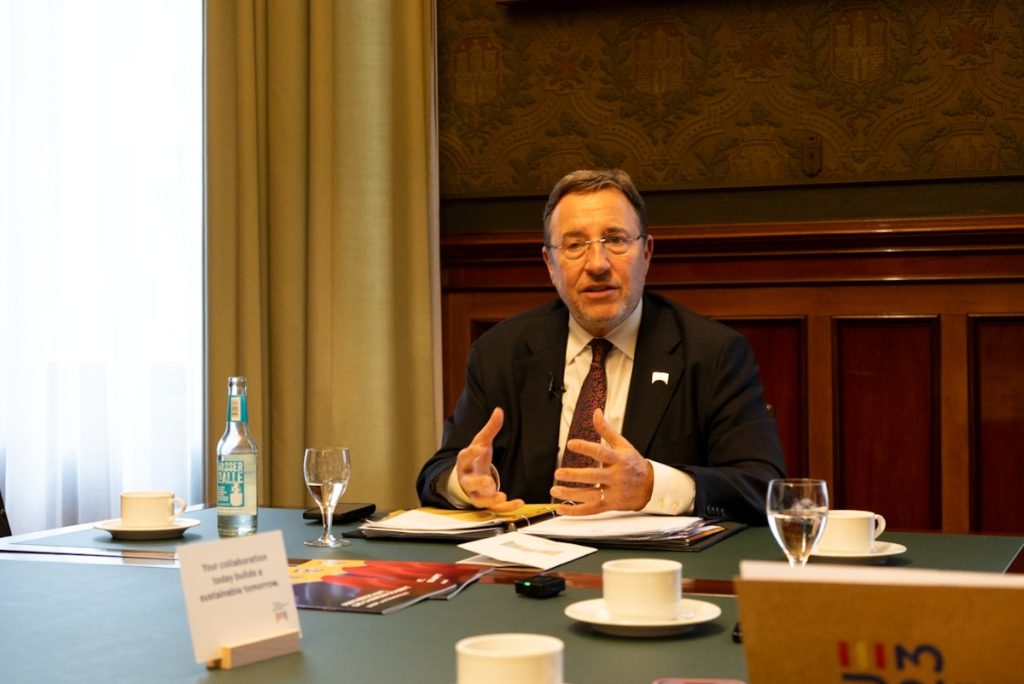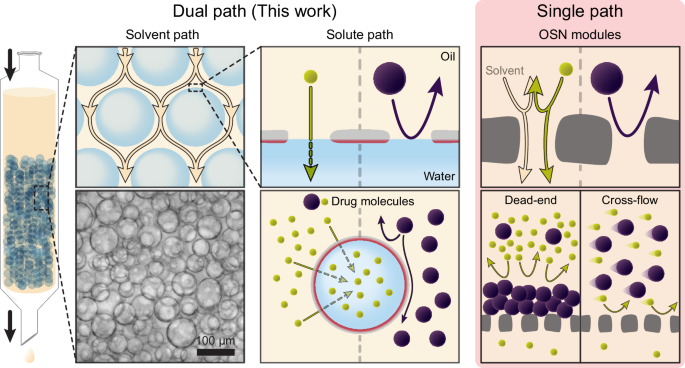
Achim Steiner is a familiar figure on the international stage, having spent decades at the helm of various United Nations agencies and international organisations. With a storied career dedicated to advancing international cooperation, Steiner has witnessed the evolution – and challenges – of the global development agenda.
As he concludes his eight-year tenure as chief of the United Nations Development Programme (UNDP), his parting message is both urgent and sobering – the international community is drifting apart and the world is now facing a “moment of profound disruption” and fragmentation that threatens our collective ability to respond to global challenges together.
Likening the current era to that of the Cold War – a period of global geopolitical rivalry following the Second World War where the use of nuclear weapons “had become almost a possible scenario” – Steiner warns that while national security threats are real, the greatest threats today “are not the army of your neighbour”.
“[This] may be cyber terrorism, lack of preparedness for the next pandemic, a deliberate attack using a pathogen or runaway climate change… We need to reframe the national security debate in the public mind, because people are scared, people are feeling uncertain, and politicians are under a lot of pressure to respond.”
Steiner was speaking to media at the recently-held Hamburg Sustainability Conference in Germany in June, hosted by the German Federal Ministry for Economic Cooperation and Development (BMZ), UNDP, the Michael Otto Foundation, and the Free Hanseatic City of Hamburg.
He pointed out that the retreat and withdrawal of international funding from the United States, which was over eight decades “a custodian and investor into the international architecture of cooperation” amplifies the current uncertainty. Others such as the United Kingdom and other OECD countries have worryingly followed with similar moves to withdraw funding from international organisations and multilaterial initiatives.
“This narrow security paradigm of defence and deterrence, measured by how many per cent of your GDP you invest [into defence]falls short of capturing the true nature of risks,” he says. “You cannot protect yourself, through a national borders narrative, from the next pandemic, nor from a cyber security attack, nor from the consequences of climate change. You need a cooperation strategy and you need everybody to invest in it… And inevitably this leads you to having to invest in international cooperation.”
Steiner, who was also previously vice chair of the UN Sustainable Development Group and head of United Nations Environment Programme, is concerned that the retreat from investing in international architecture, is leading to a “perception – or deliberately propagated view – that multilateralism is not working, not functioning, and not solving problems”.
He points to the paralysis at the UN Security Council – with China, France, Russia, UK, and the US being able to veto any substantive resolution, effectively blocking any action they disagree with – as one of the reasons why people might lose confidence and perspective in the UN system.
“But the public does not see what the UN does every day, whether on the humanitarian side, from threats in the Red Sea, to removing tankers off the coast of Yemen, to peacekeeping in conflict zones and rationing food to starving communities… our people continue to uphold this idea that we don’t abandon countries in their worst moment,” he says.
“My biggest worry right now is that the public either believes or is led to believe that all of this hasn’t worked… that development doesn’t work. It’s a ridiculous claim.”
Advocating for responsible AI
Steiner, who is Brazilian-German, was also instrumental in the Hamburg Declaration on Responsible AI for the Sustainable Development Goals (SDGs) – a new initiative launched at the HSC that is billed as “the first global declaration focused specifically on AI in international development”.
The declaration outlines shared principles and commitments to promote the equitable, inclusive, and sustainable development and deployment of artificial intelligence worldwide, with particular emphasis on empowering developing countries.
It is “a signal” for governments, the tech world and the public to advance a public policy discourse around how AI is used, and how to “ensure this new universe of possibility is not weaponized, nor instrumentalized, but deployed in support of a set of positive development objectives”, says Steiner.
AI is “far too powerful” a tool to simply allow “some kind of economic Darwinism to determine who should be a player and who shouldn’t be,” he insists. “AI has such transformative potential that in a world of unequal capacity to invest and engage with this immortal, emerging technology and the economy that it brings with it… we risk losing or leaving behind dozens of economies and countries with hundreds of millions, if not billions of people,” he observes.
The global response, he suggests, should be to rapidly invest in digital public infrastructure, have countries look at their legislative and regulatory frameworks, but also at their investment strategies to ensure they are a part of this new frontier of development.
“
“AI has such transformative potential… we risk losing or leaving behind dozens of economies and countries with hundreds of millions, if not billions of people.”
Financing the SDGs
Another major initiative launched at HSC was SCALED, or Scaling Capital for Sustainable Development, a blended finance platform launched by the governments of Germany, Canada, France and the UK and including major financial institutions such as Allianz, AXA, and Zurich Insurance Group.
Focused on mobilising private capital for sustainable development projects in emerging markets and developing economies (EMDEs), SCALED aims to standardise blended finance solutions, reduce transaction costs, with the view to improving scalability.
Steiner notes that the world has now “moved on from debates about whether sustainability is an option or an imperative to act on”.
“To be honest, I’ve worked for more than 30 years in this sector and lived with the “there are no bankable projects” narrative… but I’m also alive at a moment in time where last year, out of $3 trillion invested in global energy investment, $2 trillion of it was invested in renewables.”
Referring to Germany’s decision to introduce a feed-in tariff for solar projects 20 years ago, Steiner points out how the country “created legislation” that made it profitable for anyone who would invest in solar infrastructure and guarantee a revenue stream.
Today, Germany ranks fifth globally in installed solar capacity, reaching about 100 gigawatts peak (GWp) as of the end of last year, contributing 15 per cent to the country’s electricity production.
The challenge we face right now, he says, is that whether a project is “bankable” has more to do with the policy and fiscal conditions, or economic distortions, than it is about the technology.
“If you are heavily subsidising a diesel or petrol car, then yes, there is no bankable project there to install electric charging infrastructure unless you change the economic parameters that would make it bankable,” he says. The electric motorcycle, for example, has not taken off in Africa when it has in China, because petrol is heavily subsidised.
He notes however some signs of progress – Kenya’s electric scooter industry has taken off recently for instance, gaining significant market share, with battery swapping infrastructure being built and the country attracting renewable energy investments, demonstrating how targeted policies can drive sustainable growth.
“
“To be honest, I’ve worked for more than 30 years in this sector and lived with the “there are no bankable projects” narrative… but I’m also alive at a moment in time where last year, out of $3 trillion invested in global energy investment, $2 trillion of it was invested in renewables.”
Legacy at the UN
With Steiner having exited UNDP in mid-June, all eyes are on his next move. Germany’s federal minister for Economic Cooperation and Development Reem Alabali Radovan, who thanked Steiner on the opening day of the conference, said his departure “leaves us with a very big gap”.
Under-Secretary-General Haoliang Xu of China was recently appointed as acting administrator and will lead the agency until the onboarding of the next administrator.
Asked what he thought about his legacy at UNDP, Steiner responded quickly: “[I leave] behind a UNDP that is future smart, future ready and [that] will weather these difficult times and emerge as one of the most vital platforms for nations to work together”.
“Because we can’t run away from each other. And development cooperation with a future lens is actually one of the most attractive ways in which countries can solve problems together.”







